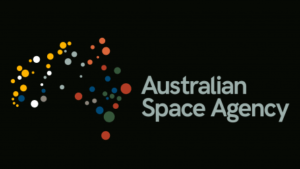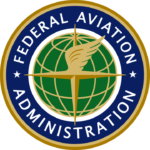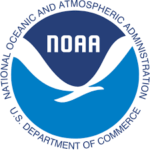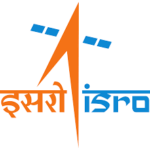When do I need a New Zealand licence or permit?
You will need a NZ licence or permit if you are seeking to conduct space activities from New Zealand.
The Outer Space and High-altitude Activities Act 2017 (NZ) requires a New Zealand licence or permit for the following space activities:
- Launch licence – required to launch a launch vehicle from NZ into outer space.
- Payload permit – required to launch payloads from NZ into outer space.
- Facility licence – required to operate a launch facility in NZ.
- High-altitude licence – required to launch a vehicle that does not reach outer space but is considered a high-altitude vehicle.
Why do I need a New Zealand licence or permit?
It is a criminal offence under the Outer Space and High-altitude Activities Act 2017 (NZ) to conduct space activities without a licence or permit.
- Offences against the Act will attract a term of imprisonment of up to 1 year and/or a fine of up to NZD$50,000 for an individual,
- In the case of a corporation, an offence will attract a fine of up to NZD$250,000.
There are liability consequences for operators who conduct space activities without holding the proper licences and permits.
- Operators who conduct unauthorised space activities will be required to indemnify the New Zealand government against claims under domestic or international law for any liability it incurs from your activities.
What licences of permits will I need?
Similar to the Australian space licensing regime, the Outer Space and High-altitude Activities Act 2017 (NZ) does not provide for a single general licence to cover all space activities – you will need separate licences and permits for different activities.
Launch licence
If you intend to conduct a space launch from New Zealand, you will need to hold a launch licence. The licence covers the ‘launch’ of a ‘launch vehicle’ from a fixed or mobile launch facility or from a launch vehicle in flight.
A ‘launch vehicle’ includes:
- Any object which is intended to carry a payload or reach outer space on its own.
A ‘launch’ means:
- Any activity which causes a launch vehicle to take off, depart or release.
You may also need to consider obtaining a payload licence if your launch vehicle is carrying a payload.
Payload permit
If you intend to launch a payload from New Zealand into outer space, you will need to hold a payload permit. The permit covers the launch of a ‘payload’ from a fixed or mobile launch facility or from a launch vehicle in flight.
A ‘payload’ includes:
- Objects intended to be carried or placed in outer space;
- Components of a launch vehicle that are specifically designed or adapted for the object; and
- Payloads carried for testing purposes or non-profit activities, including educational or scientific purposes
You may also need a launch licence if your payload will travel on a launch vehicle that you own or operate. If your payload will be launched under a launch services agreement, your launch provider may take responsibility for obtaining any necessary local licences.
Facility licence
If you intend to operate a ‘launch facility’ in New Zealand, you will need a facility licence.
A ‘launch facility’ includes:
- The licence covers any fixed or mobile facility or place from which it is intended to launch a launch vehicle.
- This also includes all other facilities necessary to launch a launch vehicle, such as mission control facilities.
You may also need a launch licence and/or a payload permit if you intend to launch a launch vehicle from a launch facility that you own or operate. If you are launching under a launch services agreement, your launch provider may take responsibility for obtaining any necessary licences.
High-altitude vehicle licence
If you intend to launch a vehicle that does not reach outer space, but nonetheless reaches a high-altitude, you will need a high-altitude licence. The licence covers any aircraft or vehicle intended to travel at a ‘high-altitude’.
‘High-altitude’ includes:
- An altitude higher than flight level 600 or the highest upper limit of controlled airspace under the Civil Aviation Act 1990 (NZ).
Exemptions:
- In certain circumstances, the launch of balloons and model-rockets are exempt from the definition of a high-altitude vehicle and as such do not require a licence.
If your vehicle is not intended to travel at high altitude, then you will not need a licence under the Act. In this case, you will need to comply with New Zealand civil aviation law.
Use cases & example scenarios
Angelo wants to know what NZ licences or permits he will need for his space operations
Angelo from ANGELS Aerospace currently operates an orbital launch range in New Zealand. Just yesterday, ANGELS Aerospace conducted its fifth orbital mission and launched three experimental satellites into low-earth orbit.
- A facility licence: The orbital launch range is a fixed facility from which ANGELS Aerospace intends to launch the rocket. The range would qualify as a launch facility under the Act, therefore requires a licence.
- A launch licence: ANGELS Aerospace are launching rockets which carry satellites into outer space. This amounts to a launch and a launch vehicle under the Act. As the rocket will enter low Earth orbit, a high-altitude licence would not cover this activity.
- Payload permit: The experimental satellites within the rocket will be placed in outer space. A payload permit is needed here.
Angelo wants to know what NZ licences or permits he will need for his space operations
Angelo from ANGELS Aerospace is planning to launch a sounding rocket from his mobile launch facility in New Zealand. Angelo’s rocket carries scientific packages which he intends to release once the rocket reaches sub-orbital spaceflight.
- Facility licence: As Angelo will be conducting the launch from his mobile launch facility, he will need to apply for a NZ launch licence.
- High-altitude vehicle licence: Angelo will need a high-altitude vehicle licence. A sounding rocket will travel above flight level 600 but will not enter outer space. Angelo will not need a payload permit as a high-altitude payload is considered as part of the high-altitude vehicle licence.
How do I get a NZ licence or permit?
How will my application be assessed?
The Outer Space and High-altitude Activities Act 2017 (NZ) sets out criteria for each licence and permit that an applicant must meet to the Minister’s satisfaction in order to obtain a licence or permit.
Requirements
- You are technically capable of conducting a safe launch;
- You have taken – and will continue to take – all reasonable steps to safely manage risks to public safety;
- You have an orbital debris mitigation plan that meets prescribed requirements;
- The proposed launch or launches under the licence is consistent with New Zealand’s international obligations; and
- You and the proposed launch or launches meet any prescribed requirements.
Even if these requirements are met, the Minister may still decline to grant a permit if they are not satisfied that:
- A proposed launch is in the national interest; and
- You are a fit and proper person.
You must pass a national security assessment before the Minister will grant a licence. The New Zealand government is responsible for undertaking this process.
Requirements
- You have taken – and will continue to take – all reasonable steps to safely manage the operation of the payload;
- You have an orbital debris mitigation plan that meets prescribed requirements;
- The proposed operation of the payload(s) under the permit is consistent with New Zealand’s international obligations; and
- There are no national security concerns which would warrant the refusal of a permit.
Even if these requirements are met, the Minister may still decline to grant a permit if they are not satisfied that:
- A proposed launch of a payload is in the national interest.
You must pass a national security assessment before the Minister will grant a permit. The New Zealand government is responsible for undertaking this process.
Requirements
- You are technically capable of safely operating a launch facility;
- You have taken – and will continue to take – all reasonable steps to safely manage risks to public safety;
- The proposed operation of the launch facility is consistent with New Zealand’s international obligations;
- You and the proposed operation of the launch facility meet any other prescribed requirements
Even if these requirements are met, the Minister may still decline to grant a permit if they are not satisfied that:
- A proposed launch of a payload is in the national interest; and
- You are a fit and proper person.
You must pass a national security assessment before the Minister will grant a licence. The New Zealand government is responsible for undertaking this process.
Requirements
- You hold the necessary approvals and authorisations required by the Civil Aviation Act 1990 (NZ) for the aircraft and its operation;
- You are technically capable of conducting a safe launch and will appropriately manage risks to public safety;
- The proposed launch or launches under the licence is consistent with New Zealand’s international obligations; and
- You and the proposed launch or launches meet any prescribed requirements.
Even if these requirements are met, the Minister may still decline to grant a permit if they are not satisfied that:
- A proposed launch of a payload is in the national interest; and
- You are a fit and proper person.
You must pass a national security assessment before the Minister will grant a licence. The New Zealand government is responsible for undertaking this process.
Comparing foreign licensing regimes
Key features:
- Australian space law applies to space activities in Australia, and to Australian nationals conducting space activities abroad.
- Space operators are required to hold insurance of up to AUD$100 million under Australian space law.
- The Australian Space Agency charges costs for assessing applications for space licences and permits.
Primary regulator:
The primary regulator of space activities in Australia is the Australian Space Agency.

Want to learn more about space law in Australia? Visit our article on Australian space law.
Key features:
-
- The United States offers three different licences and permits: Launch/Re-entry Vehicles Specific Licence, Operator licence, Experimental Permits for Reusable Suborbital Rockets.
- The costs of launching activities in the United States depends on various factors, including: the launch vehicle used, size and destination of the payload and insurance requirements, among others.
- Licence holders are required to make a reciprocal waiver of claims with the relevant parties involved in launch or re-entry services under which each party agrees to be responsible for personal injury to, death of, or property damage or loss sustained by it or its own employees resulting from an activity carried out under the applicable licence.
- Space operators are subject to ongoing monitoring by the Federal Administration Authority to ensure compliance with licence conditions.
Government regulators:
The regulation of space activities in the United States is split between several federal government agencies:
- The Federal Aviation Administration (FAA)
- The Federal Communications Commission (FCC)
- The National Oceanographic and Atmospheric Administration (NOAA)
- The Department of Commerce




Want to learn more about space law in the United States? Visit our article on United States space law.
Key features:
-
- The United Kingdom offers licences for three primary licence activities: Operator, Spaceport and Range Control.
-
- The granting of licences is controlled by the prescribed Regulator.
-
- Regulations, including insurance requirements, are still in the process of being drafted.
Primary regulator:
The primary regulator of space activities in the United Kingdom is the UK Space Agency.

Want to learn more about space law in the United Kingdom? Visit our article on United Kingdom space law.
Key features:
-
- France separates ‘launch’ and ‘command’ phase, enabling ease in apportioning liability in the case of damage.
-
- France offers obtainable licences in addition to case-by-case authorisation, with lack of clarity surrounding costs.
-
- The French space licensing regime has clear insurance requirements and regulations regarding liability.
Primary regulator:
The primary regulator of space activities in France is Centre National d’Études Spatiales (CNES).

Want to learn more about space law in France? Visit our article on French space law.
Key features:
-
- Launches are conducted through the Indian government, and there is an established commercial framework with government owned launch provider ‘Antrix’.
-
- Indian launch vehicles have flight heritage, having successfully launched hundreds of foreign space objects.
-
- There is a lack of legislation, leading to potential for discretion and uncertainty.
Primary regulator:
The primary regulator of space activities in India is the Indian Space Research Organisation.

Want to learn more about space law in India? Visit our article on Indian space law.
Key features:
-
- Unlike other space-faring nations, China does not have comprehensive laws to regulate space activities.
- Licence holders are subject to continuing supervision and obligations under Chinese regulations.
- Insurance for space activities is compulsory under the Chinese regulatory regime.
Primary regulator:
The primary regulator of space activities in China is the State Administration for Science, Technology and Industry for National Defence (SASTIND).
Want to learn more about space law in China? Visit our article on Chinese space law.
How can I get started in New Zealand?
If you are ready to start conducting space activities in New Zealand, you should follow the steps outlined below.
1. Read the Regulations to understand what information is required as part of your application(s):
You should ensure that you have the necessary information and documentation required for the New Zealand Space Agency to process your application.
- Information required for any licence or permit application; and
- Information required for launch licence application;
- Information required for payload permit application;
- Information required for facility licence application;
- Information required for high-altitude vehicle licence application;
2. Consider what other New Zealand laws may impact your activities:
You should ensure that you hold all necessary approvals or authorisations under other New Zealand laws to conduct your activities (e.g. export control laws, spectrum licences, civil aviation law).
3. Consider what additional forms you will need as part of your application:
Certain applications require applicants to complete and/or submit additional forms and documentations.
The New Zealand Space Agency also accept copies of permits from other jurisdictions that may satisfy particular requirements for a NZ licence or permit.
4. Before you begin your application, contact the New Zealand Space Agency for guidance on your application:
If you need help with your application, you can contact the New Zealand Space Agency by phone, email or post.
The Agency also has sample applications available online to assist in your application.
5. Complete and submit an application form
Certain applications require applicants to complete and/or submit additional forms and documentations.
- Application form for launch licence
- Application form for facility licence
- Application form for payload permit
- Application form for high-altitude vehicle licence
6. Apply for an overseas payload permit under Australian law
Once the application process is complete and you have been granted a NZ licence or permit, you will also need an overseas payload permitunder Australian law to conduct space activities from New Zealand.
You will need an overseas payload permit if you are an Australian citizen, resident or corporation who will be a ‘responsible party’ for the launch in New Zealand.
How much does an application cost?
New Zealand
- There are no application fees for any New Zealand licence or permit, and there are no costs involved with holding any New Zealand licence or permit.
Australia
- An application for an overseas payload permit is estimated to cost $5,979.
Frequently Asked Questions
Section 52 of the Outer Space and High-altitude Activities Act 2017 (NZ) sets out the criteria that the Minister must consider in this evaluation.
Some considerations include:
- your regulatory compliance history;
- your experience within the aviation/aerospace industry;
- your knowledge of the regulatory requirements;
- any history of serious behavioural problems; and
- your criminal history.
The Outer Space and High-altitude Activities Act 2017 (NZ) does not set a statutory timeframe for processing applications.
The time it will take to process your application will depend on the licence or permit you are applying for and the extent to which the information you have provided is complete and accurate.
It is recommended that you keep in regular contact with the New Zealand Space Agency regarding updates on your application.
Yes, New Zealand currently recognise certain jurisdictions as meeting their licence or permit requirements. This process can be used to fast-track applications for New Zealand space activity approvals.
These authorisations include those from NASA, the US Federal Communications Commission, the US Federal Aviation Administration and the European Space Agency among others. This list is open and not exhaustive.
Yes, NZ licence or permit holders are required to hold a certain type and amount of insurance specified by the Minister.
Holders will be required to hold insurance that covers themselves and the New Zealand Government.
LINK SOURCES:
Visit New Zealand’s Office of Parliamentary Counsel website for more information on the Outer Space and High-altitude Act 2017 (NZ):
http://www.legislation.govt.nz/act/public/2017/0029/latest/DLM6966275.html
Visit New Zealand’s Office of Parliamentary Counsel website for more information on the Act‘s Regulations:
http://www.legislation.govt.nz/regulation/public/2017/0250/latest/DLM7364101.html